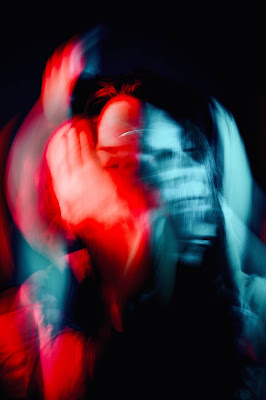A friend once shared that her youngest son was born with a painful yet invisible neurological condition. For years the young boy struggled with excruciating pain. Still, he lacked the language and understanding to communicate what was wrong because the pain was normal for him. It wasn't until the young man reached his early 20s that he gained the insight and language to share his experience and to finally receive treatment.
This story reminded me of my experience of mental illness. I lived with depression and anxiety after the birth of my second child. My brain hurt, but it was unlike any type of pain I'd ever known. I had no similar experience to draw on. I lacked the language to say what was happening. It made it nearly impossible for me to verbalize to myself what was wrong, much less express it to others.
But that didn't mean that my pain wasn't real.
I am so grateful that our culture is beginning to give language and recognition to the pain of mental illness. After a journey of years with metal injury, I now understand that my pain is real because my brain is real. When you bang your shin, you don't need to look to know something is wrong. When something triggers my anxiety, I am now experienced enough to know "'ouch' that hurt! I need to take care of that so I can heal".
But it's still hard to precisely describe the sensation, mainly because, short of using an MRI machine, you can't see the damage and we don’t seem to have the language to communicate exactly what is going on.
Still, I want to try… because my mental pain is a physical sensation that I am learning to identify. The closest way I can describe it is it feels like an aching bruise. I feel it and know that something inside my head just took damage. Some parts of my brain grow foggy, and other parts start to over-fire. Panicking neurons lead to secondary sensations like nausea and a pounding pulse. I may start to blackout. In extreme cases, my nose might even begin to bleed.
I think of medication for mental illness as a supportive cast to protect the damaged areas of my brain and of therapy as rehab to strengthen and protect those areas. With these supports, I can calm and regulate my nervous system when something 'bangs' me mentally. Even better, I have learned that I can protect myself BEFORE mental injury occurs with things like exercise, nutrition, sleep, and journaling.
Do you know what else? Just like no one escapes external injuries on this journey of life, I doubt that any of us totally escape mental injury. A traumatic situation bruises your mind just like a dropped dishwasher door can knock your shins. Some wounds heal quickly. Some can be ignored. Some leave scars that inhibit your original cognitive function. Like external ailments, some mental injuries can heal and others can be even cured. Some mental ailments may presently lack a cure, but the symptoms can, happily, be managed.
Addressing mental pain and seeking out ways to heal just makes sense. We would never demand that someone continue to walk on a broken leg! Would you call an athlete rehabbing an injury weak? Or would you admire the grit it takes to return to health?
If you know what I’m talking about, I want to reassure you: you're not ‘crazy’. The pain in your brain is a symptom of a mental injury. That drowning feeling that cripples you and presses you into the bed? That's not you; it's your injury. There is help. It can get better.
You are not alone.


No comments:
Post a Comment